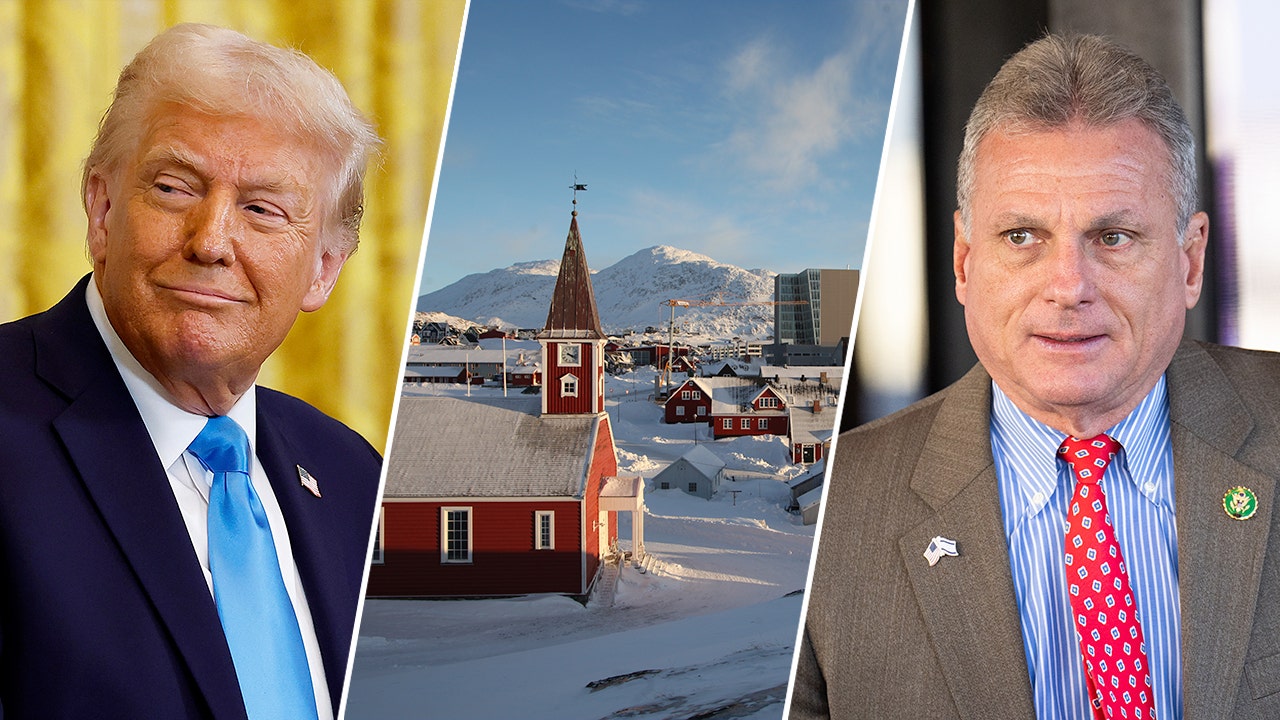Politics
Georgia congressman moves to help Trump acquire Greenland and rename it ‘Red, White and Blueland’

A Bold New Chapter: Rep. Buddy Carter’s Vision for Red, White, and Blueland
In a move that has captured the attention of policymakers and the public alike, Rep. Buddy Carter (R-Ga.) has introduced a bill that not only supports President Donald Trump’s ambitious plan to acquire Greenland but also proposes a significant change to the Nordic island’s name. The "Red, White, and Blueland Act of 2025" seeks to rename Greenland as "Red, White, and Blueland," a moniker that reflects the congressman’s belief in the potential for the island to become a U.S. territory. Carter’s initiative is rooted in the idea that "America is back and will soon be bigger than ever," as he stated in a press release accompanying the bill. This move is not just about territorial expansion; it’s about signaling a new era of American influence on the global stage.
President Trump’s Vision: A National Security Imperative
President Donald Trump has long been vocal about the strategic importance of Greenland, describing it as a "large real estate deal" that could bolster U.S. national security. Since 2019, Trump has consistently emphasized the need for the United States to acquire the Danish territory, framing it as a matter of national security and global stability. In a December 2023 post on Truth Social, Trump underscored the significance of Greenland, writing, "[F]or purposes of National Security and Freedom throughout the World, the United States of America feels that the ownership and control of Greenland is an absolute necessity." This perspective aligns with broader concerns about the increasing presence of Russia and China in the Arctic region, where Greenland plays a critical role in regional security and trade routes.
The Danish Perspective: A Delicate Balance of Interests
While the idea of renaming Greenland to "Red, White, and Blueland" may seem symbolic, it has already sparked international reactions. Danish Prime Minister Mette Frederiksen has been clear that Greenland is "not for sale," reaffirming Denmark’s sovereignty over the territory. However, Frederiksen has also indicated an openness to strengthening U.S. involvement in the Arctic, particularly in the context of defense and deterrence. "I totally agree with the Americans that the High North, that the Arctic region is becoming more and more important when we are talking about defense and security and deterrence," Frederiksen said in response to the U.S. interest in Greenland. This nuanced stance reflects the delicate balance Denmark is striking between asserting its sovereignty and acknowledging the strategic importance of the Arctic region.
The Strategic Significance of Greenland
Greenland’s strategic importance cannot be overstated. The island is rich in natural resources, including rare earth minerals, which are critical for advancing clean energy technologies and maintaining global technological supremacy. Moreover, Greenland’s geographic location makes it a vital asset for military and surveillance operations, particularly in the Arctic, where melting ice is opening up new shipping lanes and resources. The U.S. already has a military presence in Greenland, primarily through its Thule Air Base, which serves as a key installation for missile defense and space surveillance. Expanding this footprint could further enhance U.S. capabilities in the region and counterbalance the growing influence of Russia and China.
A Name Change with Deeper Meaning
The proposal to rename Greenland as "Red, White, and Blueland" is more than just a symbolic gesture; it reflects a broader vision of American identity and influence. The name change is intended to symbolize the integration of Greenland into the American fold, with the colors red, white, and blue evoking the Stars and Stripes. While the bill does not explicitly address the cultural or historical dimensions of this change, it is clear that the proposal is designed to signal a new chapter for Greenland as a U.S. territory. Carter’s office has emphasized that the name change would apply to all official references to Greenland in U.S. documents, maps, and records, effectively rebranding the island as an American entity.
Looking Ahead: The Implications of a New Era
As the debate over Greenland’s future continues, it is important to consider the broader implications of this proposed shift in U.S. foreign policy. While President Trump’s interest in acquiring Greenland has been met with skepticism by some, it underscores the growing recognition of the Arctic as a critical region in global geopolitics. The renaming proposal, while unconventional, reflects the ambition and confidence that have characterized much of Trump’s presidency. Whether or not the "Red, White, and Blueland Act of 2025" gains traction, it serves as a reminder of the dynamic and often unpredictable nature of international relations in the 21st century. As the U.S. navigates this new era of global competition, the story of Greenland—and its potential place in the American story—will undoubtedly remain a topic of interest and debate.